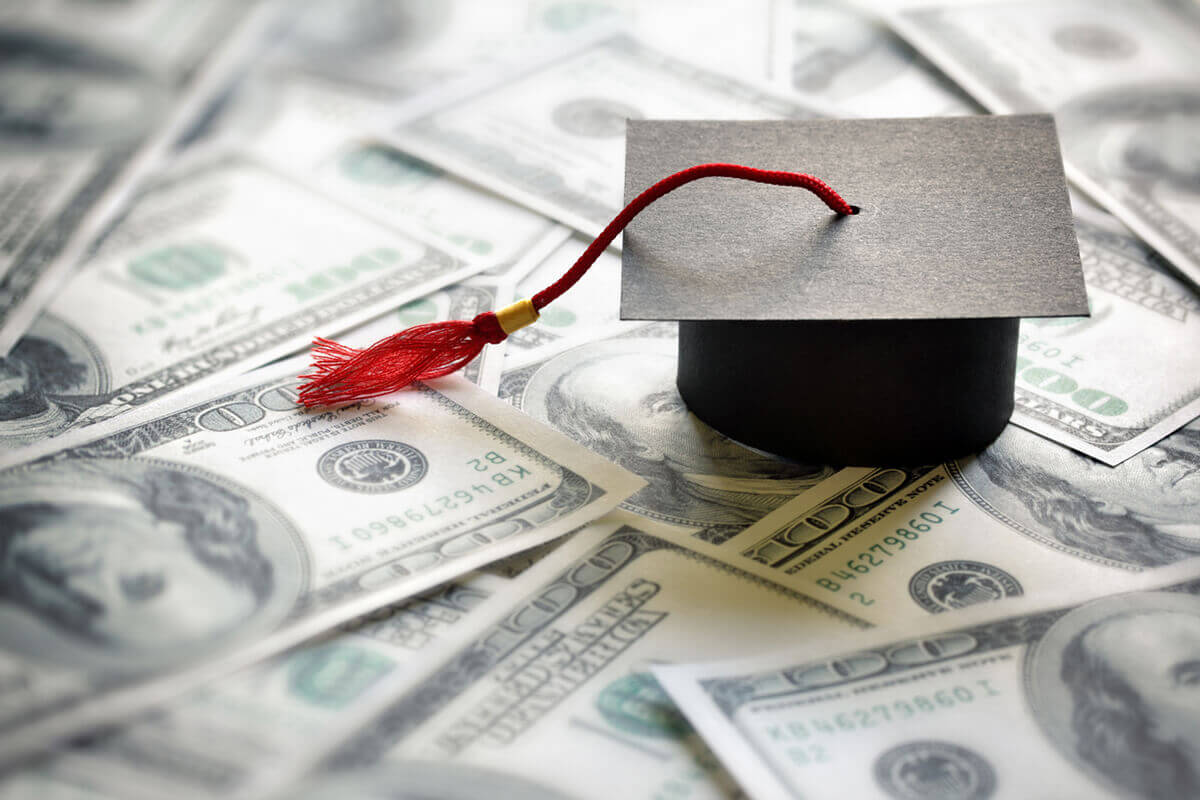Recent media attention has focused on the high cost of higher education and in particular, student loan debt and the general lack of financial preparedness of student borrowers to establish a budget, manage credit, or invest for retirement. Students may give little thought to strategies they will need to enter the job market, pay rent and manage other day-to-day expenses, while simultaneously paying down student loans. Seven in ten seniors graduating from college today have student loan debt over $30,000. Typical graduate students accumulate $100,000 in debt, and one in ten borrows more than $150,000.
Unfortunately, financial management isn’t something taught in most high schools, and even more rarely in colleges. America’s educational funding system for secondary education is also extremely confusing. Students don’t really understand what they’re doing when applying for loans, grants and scholarships. Inevitably, young people (and parents) are put between the proverbial rock and hard place. Either they continue to borrow or choose not to graduate. There is an urgent need to ensure that young people receive basic financial knowledge. Learning to balance a checkbook, check a credit report, or establish a budget should not be something learned after graduate school.
WATCH: Professor of Business Law John Winn, J.D., LLM, is interviewed by WHAG reporter Sierra Fox in her segment, “McAuliffe announces new series to prepare students for higher education and managing debt.”
Beginning in high school, students should be prepared to establish a budget, avoid unnecessary debt, and inculcate the importance of investing for retirement. The most important lesson is that credit is a tool that must be used wisely. Financial experts point out the importance of “consumer sovereignty.” In other words, while money doesn’t secure happiness, excessive debt and inability to meet financial obligations certainly isn’t conducive to a happy life!
The Byrd School of Business curriculum includes a three-credit-hour elective for non-business students (BA-107 Personal Finance). BA-107 enables students to make sound and responsible decisions relevant to saving, spending, investing, managing credit, housing, healthcare, tax preparation and insurance. In addition to the Personal Finance course, Professor of Business Law John Winn, J.D., LLM, annually teams with the Physician Assistant Studies and Physical Therapy programs to provide three hours of intensive training on financial basics and student loan repayment strategies for graduating students.
WHAG reporter Sierra Fox interviews John Winn
- Do you think a program such as “Life After High School: Navigating Higher Education & Managing Debt” is important to help students learn how to invest in themselves and manage money?
Most young people today are not prepared to manage money, establish a budget, savings, manage credit, or investing for retirement. I actually teach a three hour block on these and other topics to students in our Doctoral programs. Many have given little or no thought to the need to establish good credit, pay off student loans, and invest for retirement. - Why is it important for students to know how to manage debt for the long run
Credit is a tool that must be understood and used wisely. I actually like to point out that in most cases, someone with bad credit or excessive debt also has a life that is “out-of-control” or at least mismanaged. While money doesn’t secure happiness, excessive debt and the inability to meet financial needs and obligations certainly isn’t conducive to happiness! - Many people say, dealing with debt isn’t something you learn in high school/college and many students feel stuck or don’t really understand what they’re doing when applying for loans, grants, and scholarships/applying for higher education… what do you think about that and do you think a program like this could help solve that issue?
I agree that our educational funding system for secondary education is extremely confusing. Young people (and parents) are put between a rock and a hard place. We have undergraduates with more than 50K dollars in student loan debt and doctoral students with THREE times this much student loan debt,. - What advice do you have for students coming out of high school when it comes to managing money and controlling debt that they may not realize?
The five best things to do are to (1) learn to budget, (2) save three months salary for emergencies, (3) get married to a working spouse, (4) avoid credit-card debt, and (5) start investing for retirement IMMEDIATELY, even if it’s just 50 or 100 dollars a month. There is a huge amount of information, free software, apps, etc. on the internet.




